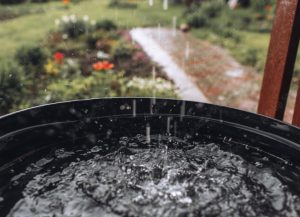In today’s world, sustainability has extended beyond our homes and outdoor spaces. Zero-waste outdoor living is a growing trend, where individuals aim to minimize their environmental footprint and reduce waste when enjoying their gardens, patios, and outdoor events. One of the critical elements in achieving zero-waste outdoor living is thoughtful landscaping. In this blog, we’ll explore how landscaping plays a pivotal role in this sustainable lifestyle and provide numerous examples to help you get started.

Landscaping with Sustainability in Mind
Landscaping is not just about creating a beautiful outdoor environment; it’s also a way to promote sustainable practices. Whether you have a small urban garden or a sprawling backyard, your outdoor space can be transformed into a sustainable oasis.
- Plant Native Species: Landscaping with native plants reduces the need for excessive watering and supports local biodiversity. Native plants are adapted to the region’s climate and require less maintenance. For example, consider incorporating drought-tolerant species like California poppies in your garden or yard.
- Composting Systems: Landscaping allows you to integrate composting systems seamlessly. Composting kitchen scraps, yard waste, and fallen leaves in your garden beds enriches the soil, reducing the need for chemical fertilizers and diverting organic waste from landfills.
- Rain Gardens: Create rain gardens to capture and filter rainwater naturally. These gardens not only reduce runoff but also support native plants and wildlife. Rain gardens are an excellent example of merging sustainable practices with landscaping.

Reusable Dishes: Minimize Waste at Outdoor Gatherings
Using reusable dishes is a simple but impactful step towards a zero-waste lifestyle when hosting outdoor events or gatherings, such as barbecues or picnics.
- Reusable Picnic Ware: Instead of disposable plates and utensils, invest in durable, reusable picnic ware made from stainless steel, bamboo, or melamine. For example, a set of stainless steel picnic plates can last for years and significantly reduce waste.
- Cloth Napkins: Replace paper napkins with cloth napkins that can be washed and used repeatedly. You’ll reduce waste and add a touch of elegance to your outdoor dining experience.
- Eco-Friendly Cutlery: Choose reusable cutlery from sustainable materials like bamboo or stainless steel. These utensils are not only durable but also eco-friendly.

Composting: Turn Food Waste into Garden Gold
Composting food waste in your outdoor space is a perfect way to close the loop on your sustainability efforts. Here are some practical examples of how to incorporate composting into your landscaping:
- Compost Bins: Discreetly compost bins in your outdoor area to collect kitchen scraps and yard waste. You can use the resulting compost to nourish your garden, reducing the need for chemical fertilizers. If space is limited, consider a worm composting system, which can thrive on balconies or patios.
- Mulch Beds: Utilize compost as a natural mulch to enrich the soil in your garden beds. Mulching helps retain moisture, suppress weeds, and regulate soil temperature.
- Green Waste Recycling: In areas where green waste recycling programs are available, take advantage of them. Many cities collect yard waste for composting, reducing the load on landfills and turning organic materials into valuable soil amendments.

Reducing Single-Use Plastics: Eco-Friendly Alternatives
Single-use plastics are a significant source of waste in outdoor living. Thankfully, there are numerous alternatives available:
- Beverage Dispensers: Instead of buying bottled drinks, serve beverages from large dispensers with reusable cups. This reduces the need for plastic bottles and cups.
- Reusable Food Storage: Opt for reusable food storage containers when packing for outdoor adventures. These containers are durable and can be used repeatedly.
- Eco-Friendly Straws: Replace single-use plastic straws with reusable metal or bamboo straws. Some eco-conscious brands even offer straws made from materials like wheat or glass.
Embracing a zero-waste lifestyle in your outdoor spaces is not only beneficial for the environment but also for your well-being. Landscaping with sustainability in mind, using reusable dishes, composting food waste, and reducing single-use plastics are all integral parts of this endeavour. By incorporating these practices, you contribute to a healthier planet and create a beautiful and eco-friendly outdoor haven for yourself and your loved ones.
In every step, landscaping takes center stage, enhancing the beauty and sustainability of your outdoor space. From planting native species to creating rain gardens, landscaping is crucial in promoting zero-waste outdoor living. You can begin your journey toward a more sustainable and eco-conscious outdoor lifestyle with the provided examples.
So, as you plan your next outdoor event, remember the power of thoughtful landscaping and how it can pave the way for a greener, cleaner future.